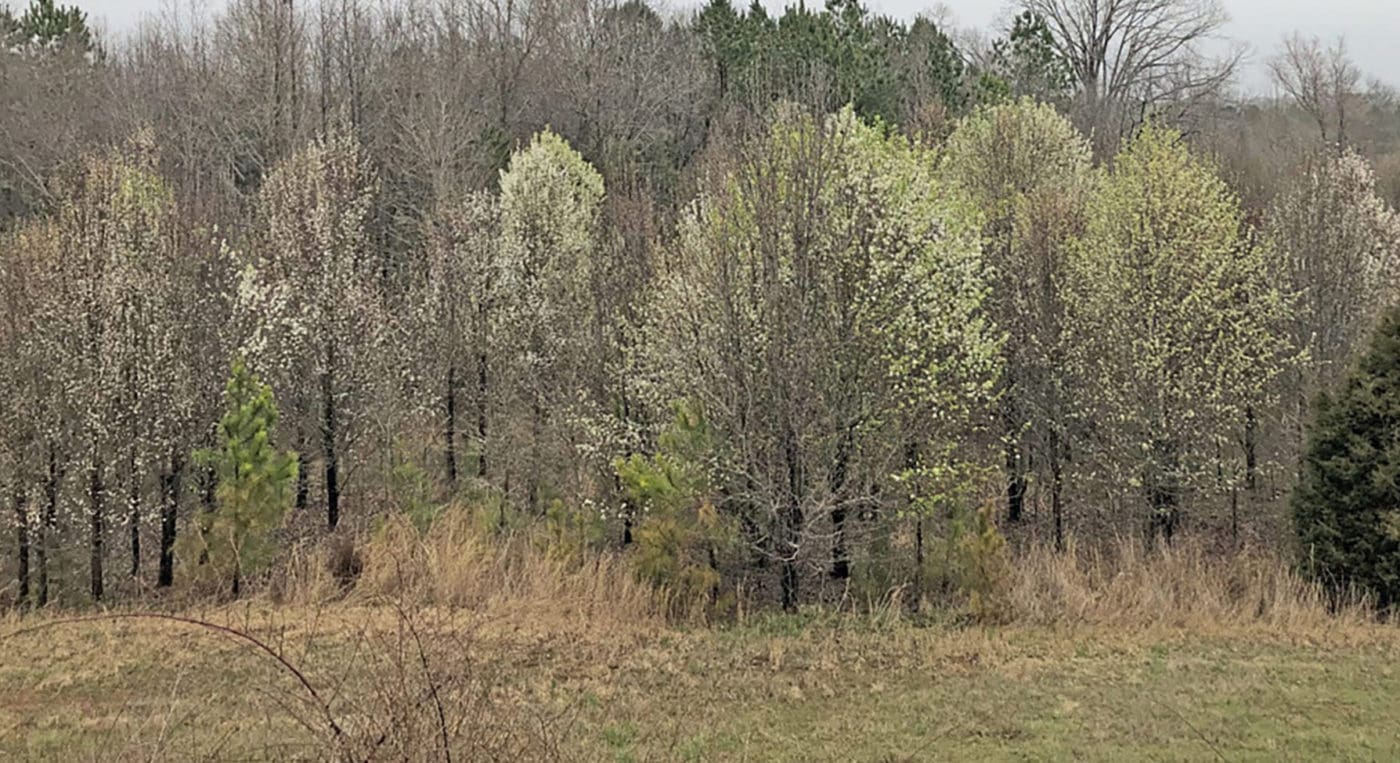Callery pears are an aggressive invasive species with stems and branches possessing large thorns. They can spread by seed or root sprouts and can quickly take over a roadside, old field, pasture, vacant lot, or forest understory.
South Carolina will become only the second state in the United States to ban the sale of Bradford pear trees and any other pear trees grown on the commonly used Pyrus calleryana rootstock.
The ban on sales of Pyrus calleryana — or Callery pear — and three species of Elaeagnus will begin Oct. 1, 2024.
Bradford pears were once touted as sterile, but it turns out that if pollen from any other Pyrus species gets into Bradford pear flowers, the trees can make viable seeds. Those seeds are then eaten by birds and other animals and spread across the Southeastern landscape, contributing directly to one of the worst invasive plant species in the region — the Callery pear.
Does this mean that homeowners have to cut down a Bradford pear tree or remove the Elaeagnus shrub growing on their property? No, but they are encouraged to do so. In fact, Clemson University runs an annual program where residents can obtain a free, native replacement tree in exchange for cutting down their Bradford pear tree. For more details, see the Clemson Bradford Pear Bounty program.
“I think the impacts of it as it gets out into the natural landscape are pretty evident,” said David Coyle, assistant professor of Forest Health and Invasive Species at Clemson. “Frankly, there are a lot better things that people could put in their yards; there are a lot of good natives they should probably plant instead.”
Not only do Callery pears have nasty thorns that can damage everything from tractor tires to livestock, but they also damage the ecosystem by crowding out native plants while providing little to no food for insects.
The ban on these plants will make them illegal to sell or trade within South Carolina. “There are several ways to attack the problem, and one of those ways is to just stop it from being sold,” Coyle said. “As part of Clemson Extension’s Bradford Pear Bounty program, we’re trying to teach consumers that there are better things to plant and, essentially, teach them not to buy those non-native species. But you can’t reach everyone that way, so we’re trying to come at it from another way and just make it illegal to sell them.”
Noxious weeds are weeds that have been designated by an agricultural or other governing authorities as a plant that is injurious to crops, ecosystems, humans or livestock. To read the full news release, visit Clemson News: Invasive Bradford pear, 3 other species to be banned for sale in SC.
To learn about South Carolina’s other listed species, browse Clemon’s State Plant Pest List.



